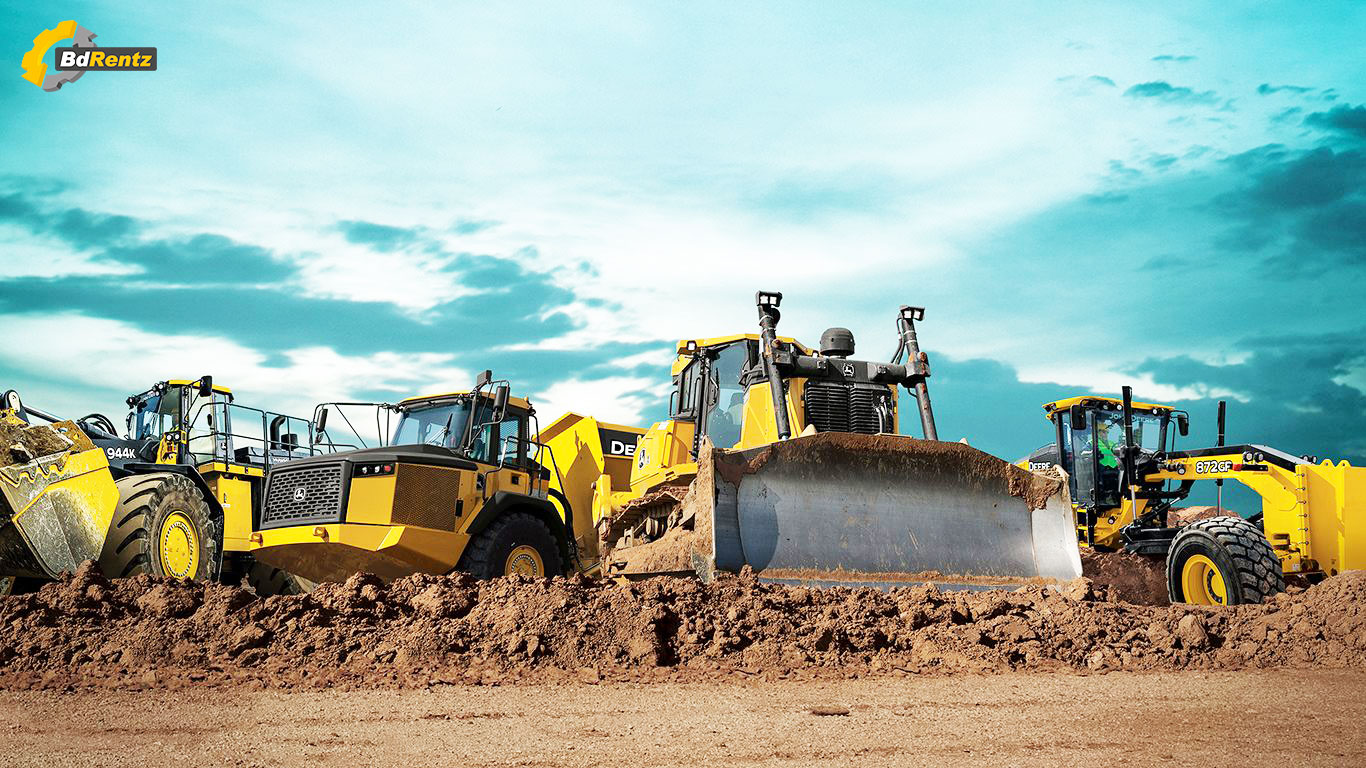Construction Equipment Rentals: Strong Machinery for Your Projects
Optimize Your Budget Plan by Comprehending the Prices Connected With Building And Construction Devices Services
Understanding the complete extent of costs connected with building and construction tools services is crucial for optimizing your budget plan. What techniques can be utilized to effectively manage these expenses and make sure an extra effective rental experience?
Review of Rental Costs
When considering construction tools services, comprehending the associated expenses is vital for effective budgeting and project preparation. Rental expenses can differ significantly based on a number of aspects, consisting of equipment kind, duration of service, and location. The first rental fee usually mirrors the tools's market demand and its associated functional capabilities, influencing the general expenditure.
In addition to the base rental rate, supplementary prices might occur, such as transport charges, gas surcharges, and maintenance costs. It is crucial to make up these extra expenditures to accurately evaluate the overall cost of leasing equipment. Furthermore, the rental duration can influence pricing; longer rentals may certify for reduced rates, while short-term leasings may sustain higher everyday charges.

Malfunction of Rental Rates
An extensive understanding of rental rates is crucial for contractors and task supervisors aiming to optimize their spending plans. Rental prices for building and construction equipment normally include a number of parts, consisting of base rates, time-based fees, and usage fees.
Base prices are the core fees related to the service of the devices, typically identified by the type and dimension of the equipment. These rates can differ dramatically, influenced by variables such as tools need, availability, and local market patterns. Time-based charges, which might be daily, weekly, or monthly, serve to suit different task timelines and rental periods.
Additionally, rental rates may consist of use fees, which are appropriate when devices is utilized beyond a specified threshold, ensuring that the rental firm can account for deterioration. Seasonal demand fluctuations can likewise affect rental prices, with peak construction periods generally regulating higher costs.
Moreover, recognizing the rental business's policies concerning upkeep and insurance coverage can provide additional understanding right into the total expense structure. By assessing these parts, professionals can make educated choices, guaranteeing the option of rental equipment lines up with both task requirements and budget plan restrictions.
Added Fees to Consider
Comprehending the ins and outs of added costs is crucial for contractors to manage their overall rental expenses efficiently. Beyond the conventional rental rates, various supplemental fees can considerably impact the total cost of equipment service. These costs usually consist of distribution and pick-up fees, which can vary based on distance and logistics associated with moving the tools click here for more to and from the job website.
Furthermore, some rental companies may impose fuel surcharges if the devices is returned with less fuel than when leased. It is also necessary to recognize possible cleansing charges, specifically for specific equipment that requires comprehensive maintenance after usage.

Thoroughly reviewing the rental agreement and clearing up these additional fees in advance can assist contractors prevent unanticipated costs and make certain that spending plans remain intact throughout the job lifecycle.
Repair And Maintenance Expenses
Normal repair and maintenance expenses are usually forgotten variables that can dramatically affect the total cost of building equipment services. When renting out devices, it is important to take into consideration not only the rental charges but also the prospective expenses connected with keeping the machinery in ideal operating problem.
Several rental companies include standard maintenance as part of the rental contract; nevertheless, extra extensive repair work or unexpected breakdowns can result in extra expenses. It's important to assess the rental agreement meticulously to understand what maintenance Related Site services are covered and what obligations drop on the tenant.
Additionally, equipment that is not well-maintained can cause inefficiencies on duty website, possibly boosting and creating hold-ups task expenses. To mitigate these risks, it is advisable to perform normal evaluations and keep open interaction with the rental supplier concerning any kind of issues that occur throughout usage.
Insurance Coverage and Responsibility Prices
Insurance coverage and responsibility prices are important components that can significantly affect the total cost of building and construction tools services (mini excavator rental). These prices make sure that both the rental company and the customer are secured from prospective monetary losses arising from accidents, damage, or burglary during the rental period

In addition, clients must understand any type of deductibles or exemptions in the insurance coverage, as these can affect possible out-of-pocket expenses. Understanding the conditions of any kind of insurance policy protection is essential to prevent unforeseen expenses. Ultimately, budgeting for insurance and obligation expenses can help make sure a smoother rental experience and safeguard versus financial risks connected with building and construction jobs.
Conclusion
In final thought, a comprehensive understanding of the costs connected with building tools services is essential for effective spending plan management. By examining rental rates, extra charges, maintenance expenditures, and insurance coverage needs, organizations and individuals can decrease unexpected expenditures. This tactical approach not only improves cost-effectiveness however likewise makes sure that jobs progress efficiently and efficiently. Inevitably, notified decision-making concerning tools rentals adds to the overall success of building and construction undertakings.
Rental expenses can differ considerably based on several heavy moving equipment rental factors, including devices kind, period of service, and location (mini excavator rental). The rental duration can influence pricing; longer services might qualify for affordable rates, while temporary rentals could sustain greater everyday fees
By performing thorough research and engaging with reputable rental firms, professionals can successfully navigate the complexities of rental prices, inevitably optimizing their financial resources.
Past the basic rental prices, numerous supplementary fees can dramatically impact the overall price of equipment rental. Rental firms typically supply liability insurance that covers injuries to third parties or damage to home, while equipment damages insurance can cover the cost of repair work or replacement if the rented equipment is harmed.